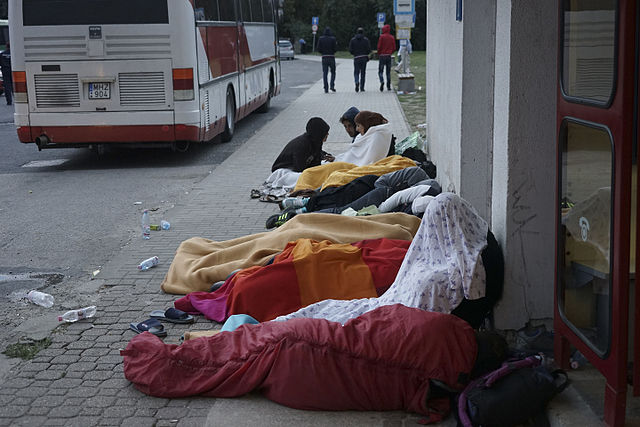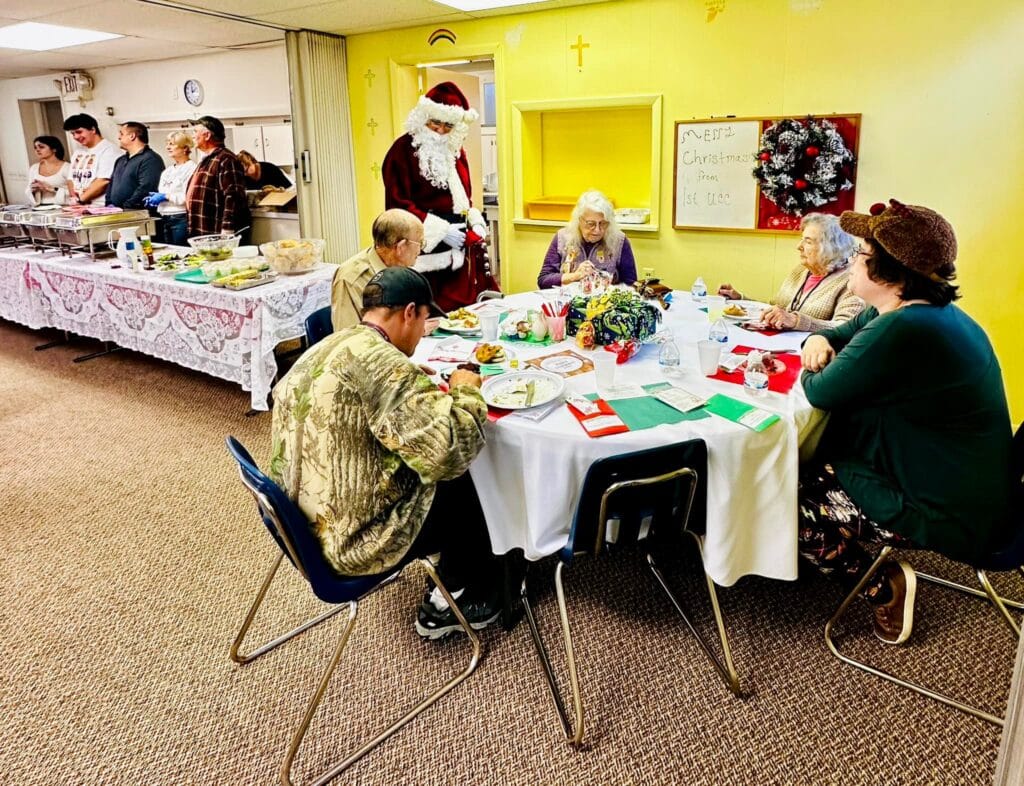Global Ministries pledges continued assistance to displaced families amid Syrian refugee debate
 As United States lawmakers fuel the debate about the Syrian refugee status in this country, with the House of Representatives voting Thursday, Nov. 19, to ban Syrian and Iraqi refugees until stricter screening measures are adopted, United Church of Christ advocates underscore the importance of helping those displaced people where they are.
As United States lawmakers fuel the debate about the Syrian refugee status in this country, with the House of Representatives voting Thursday, Nov. 19, to ban Syrian and Iraqi refugees until stricter screening measures are adopted, United Church of Christ advocates underscore the importance of helping those displaced people where they are.
Rather than wait to help those that may enter the U.S., the UCC and the Christian Church (Disciples of Christ) continue to take assistance to Syrian refugee families in the Middle East — where an overwhelming majority of refugees are located. That assistance includes supporting partner organizations in Middle East countries that provide humanitarian aid, advocacy for an end to violence, and prayers for the affected families.
Peter Makari, Global Ministries executive for the Middle East and Europe, said “about four percent of Syrian migrants have made their way into Europe or the U.S.”
The UCC has distributed emergency funds of $396,000 in the last five years to aid refugee families through Global Ministries, a shared ministry of the UCC and Disciples, and world-wide church relief organizations ACT Alliance and Church World Service. So far in 2015, the denomination has sent $120,000. The Rev. James Moos, executive minster of UCC Wider Church Ministries, says the denomination will continue to assist refugees long after the Syrian conflict ends.
“We have cooperated with global partners in support of refugees in the Middle East for the last 100 years, and have assisted Syrian refugees since the beginning of the war in their country nearly five years ago,” Moos said. “We work together both to meet the humanitarian needs of refugees, and to advocate for peace with justice. We are committed to continuing that work for as long as necessary, even as we pray that the violence will cease and that the rights and dignity of all of God’s children will be respected.”
One example in which the Global Ministries’ contributions have aided refugees: the Greek Orthodox Patriarchate of Antioch and All the East, located in the Syrian capital of Damascus, provided summer schools and other educational opportunities for children who were isolated in refugee camps. However, the project is not sustainable with outside support since displaced families do not have a steady income source to pay school expenses.
A number of partners in the region are providing food, shelter and warm clothing for the winter season, and trauma care is provided through a variety of partners in Syria, Lebanon, Jordan and Turkey, where a majority of displaced Syrians are located.
The Syrian crisis began in early 2011, when peaceful protestors voiced their hope for political and economic reform during the Arab Spring that swept through the Middle East and North Africa. Months later in March, the situation turned violent when government forces shot and killed protestors. Since then, more than 250,000 Syrians have been killed in the fighting, and half the Syrian population has been forced from their homes, displaced internally as refugees, with millions more taking refuge in neighboring countries: Jordan (630,000 registered), Lebanon (1 million registered) and Turkey (2.1 million registered).
Though the Obama administration has pledged to admit 10,000 Syrian refugees by 2016, several U.S. governors announced recently that they want to stop their states from accepting them, proclamations spurred by a series of deadly terrorist attacks in Beirut, Paris and Baghdad. Most of the terrorists were either French or Belgian nationals, but one was found with a fake Syrian passport — according to news reports — and traveled through Europe under a false name. It has raised tension about whether or not the U.S. can properly vet refugees.
“Refugees are already the most heavily scrutinized entrants to our nation, subjected to multiple and repeated security screenings,” Makari said. “Such safeguards are essential, should be adequately supported, and should be efficiently managed. The U.S. should continue offering welcome to the world’s most vulnerable peoples, including refugees from Syria.”
Denominational leaders believe shutting the door to refugees goes against values of faith and everything for which the United States stands. The UCC has launched letter campaign, urging people of faith to send to policy-makers conveying their support to welcome Syrian refugees.
More information on the Syria crisis, resources and donation opportunities are available on the Global Ministries website.
Related News
Year in Review: Top news highlights of 2024
The United Church of Christ News team has spent each week of 2024 delivering stories that...
Read MoreNo more lonely little Christmases: Chasing away the blues now and into the New Year
With the loneliness epidemic in the U.S. continuing to affect every one in five people, many...
Read MoreUCC Annual Report video brings to life impactful ministries
Leaders of the United Church of Christ are thrilled to share the newly released 2024 Annual...
Read More


